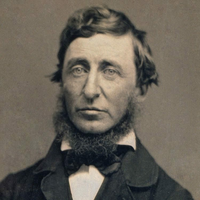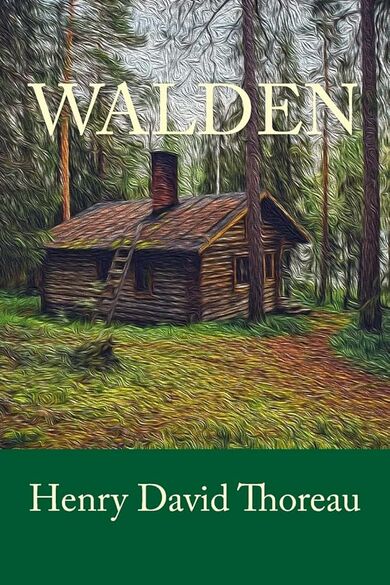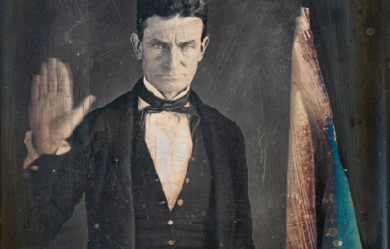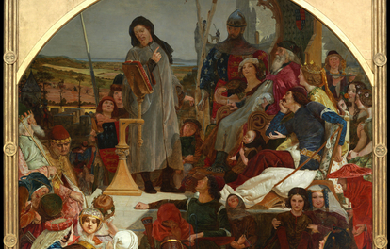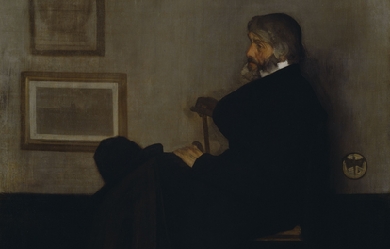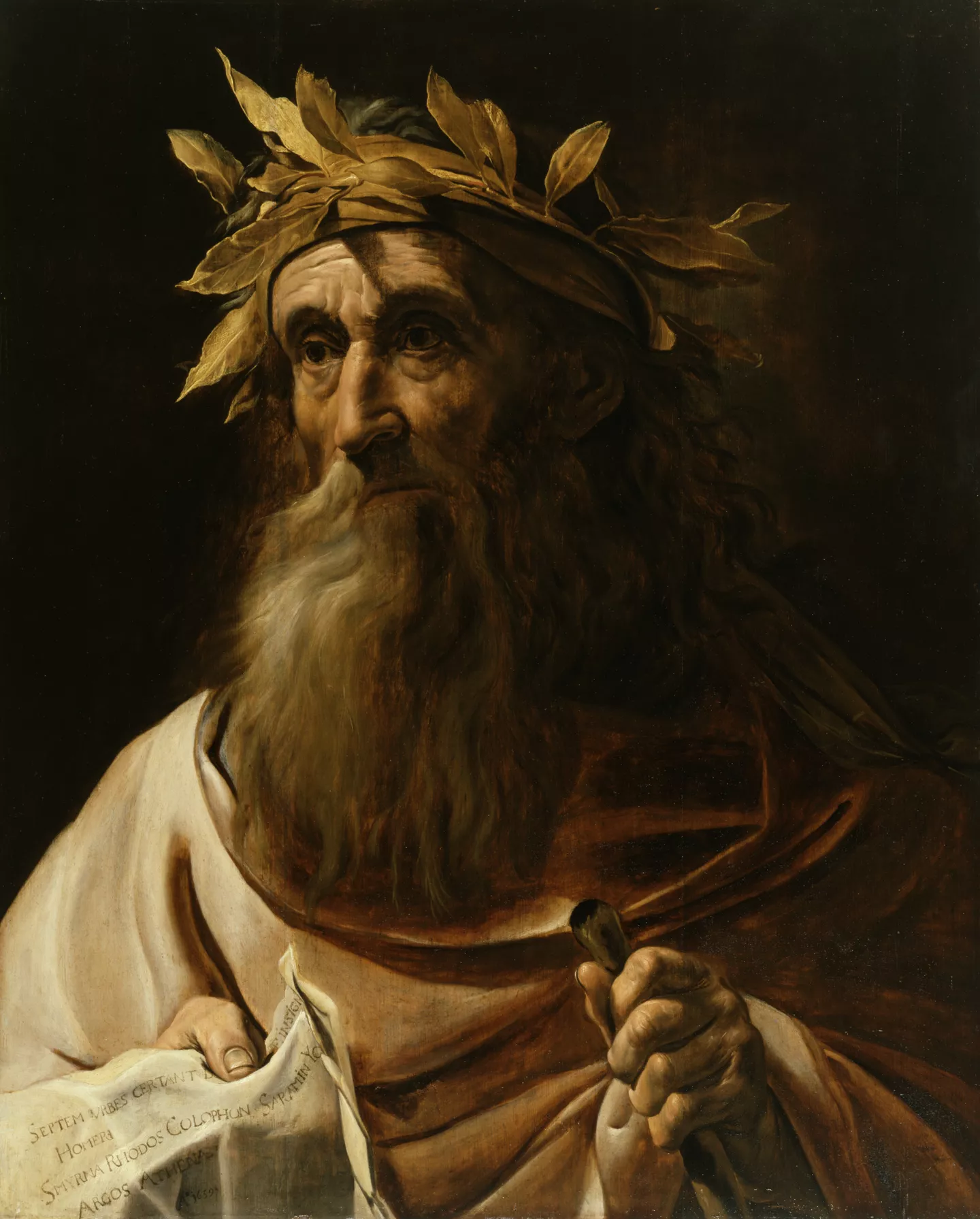
Homer
The wisest definition of poetry the poet will instantly prove false by setting aside its requisitions. We can therefore publish only our advertisement of it.
There is no doubt that the loftiest written wisdom is rhymed or measured, is in form as well as substance poetry; and a volume, which should contain the condensed wisdom of mankind, need not have one rhythmless line. Yet poetry, though the last and finest result, is a natural fruit. As naturally as the oak bears an acorn, and the vine a gourd, man bears a poem, either spoken or done. It is the chief and most memorable success, for history is but a prose narrative of poetic deeds. What else have the Hindus, the Persians, the Babylonians, the Egyptians, done that can be told? It is the simplest relation of phenomena, and describes the commonest sensations with more truth than science does, and the latter at a distance slowly mimics its style and methods. The poet sings how the blood flows in his veins. He performs his functions, and is so well that he needs such stimulus to sing only as plants to put forth leaves and blossoms. He would strive in vain to modulate the remote and transient music which he sometimes hears, since his song is a vital function like breathing, and an integral result like weight. It is not the overflowing of life but its subsidence rather, and is drawn from under the feet of the poet. It is enough if Homer but say the sun sets. He is as serene as nature, and we can hardly detect the enthusiasm of the bard. It is as if nature spoke. He presents to us the simplest pictures of human life, so that childhood itself can understand them, and the man must not think twice to appreciate his naturalness. Each reader discovers for himself, that succeeding poets have done little else than copy his similes. His more memorable passages are as naturally bright, as gleams of sunlight in misty weather. Nature furnishes him not only with words, but with sterotyped lines and sentences from her mint.
All shining, and then again it goes behind the shadowy clouds
So Hector, at one time appeared among the foremost,
And at another in the rear, commanding; and all with brass
He shone, like to the lightning of aegis-bearing Zeus.”
He conveys the least information, even the hour of the day, with such magnificence, and vast expense of natural imagery, as if it were a message from the gods.
For that space the weapons of both flew fast, and the people fell;
But when now the woodcutter was preparing his morning meal
In the recesses of the mountains, and had wearied his hands
With cutting lofty trees, and satiety came to his mind,
And the desire of sweet food took possession of his thoughts;
Then the Danaans by their valor broke the phalanxes,
Shouting to their companions from rank to rank.”
When the army of the Trojans passed the night under arms, keeping watch lest the enemy should reembark under cover of the dark,
Sat all the night; and many fires burned for them.
As when in the heavens the stars round the bright moon
Appear beautiful, and the air is without wind;
And all the heights, and the extreme summits,
And the shady valleys appear; and the shepherd rejoices in his
So between the ships and the streams of Xanthus
Appeared the fires of the Trojans before Ilium.”
The “white-armed goddess Juno,” sent by the father of gods and men for Iris and Apollo,
As when the mind of a man, who has come over much earth,
Sallies forth, and he reflects with rapid thoughts,
There was I, and there, and remembers many things;
So swiftly the august Juno hastening flew through the air;
And came to high Olympus.”
There are few books which are fit to be remembered in our wisest hours, but the Iliad is brightest in the serenest days, and embodies still all the sunlight that fell on Asia Minor. No modern joy or ecstasy of ours can lower its height or dim its lustre; but there it lies in the last of literature, as it were the earliest, latest production of the mind. The ruins of Egypt oppress and stifle us with their dust, foulness preserved in cassia and pitch, and swathed in linen; the death of that which ever lived. But the rays of Greek poetry struggle down to us, and mingle with the sunbeams of the recent day. The statue of Memnon is cast down, but the shaft of the Iliad still meets the sun in his rising.
So too, no doubt, Homer had his Homer, and Orpheus his Orpheus, in the dim antiquity which preceded them. The mythological system of the ancients, and it is still the only mythology of the moderns, the poem of mankind, interwoven so wonderfully with their astronomy, and matching in grandeur and harmony with the architecture of the Heavens themselves, seems to point to a time when a mightier genius inhabited the earth. But man is the great poet, and not Homer nor Shakespeare; and our language itself, and the common arts of life are his work. Poetry is so universally true and independent of experience, that it does not need any particular biography to illustrate it, but we refer it sooner or later to some Orpheus or Linus, and after ages to the genius of humanity, and the gods themselves.
Extracts from a lecture on poetry, read before the Concord Lyceum, November 29, 1843. First published in The Dial, Vol. 4, No. 3, January, 1844.


